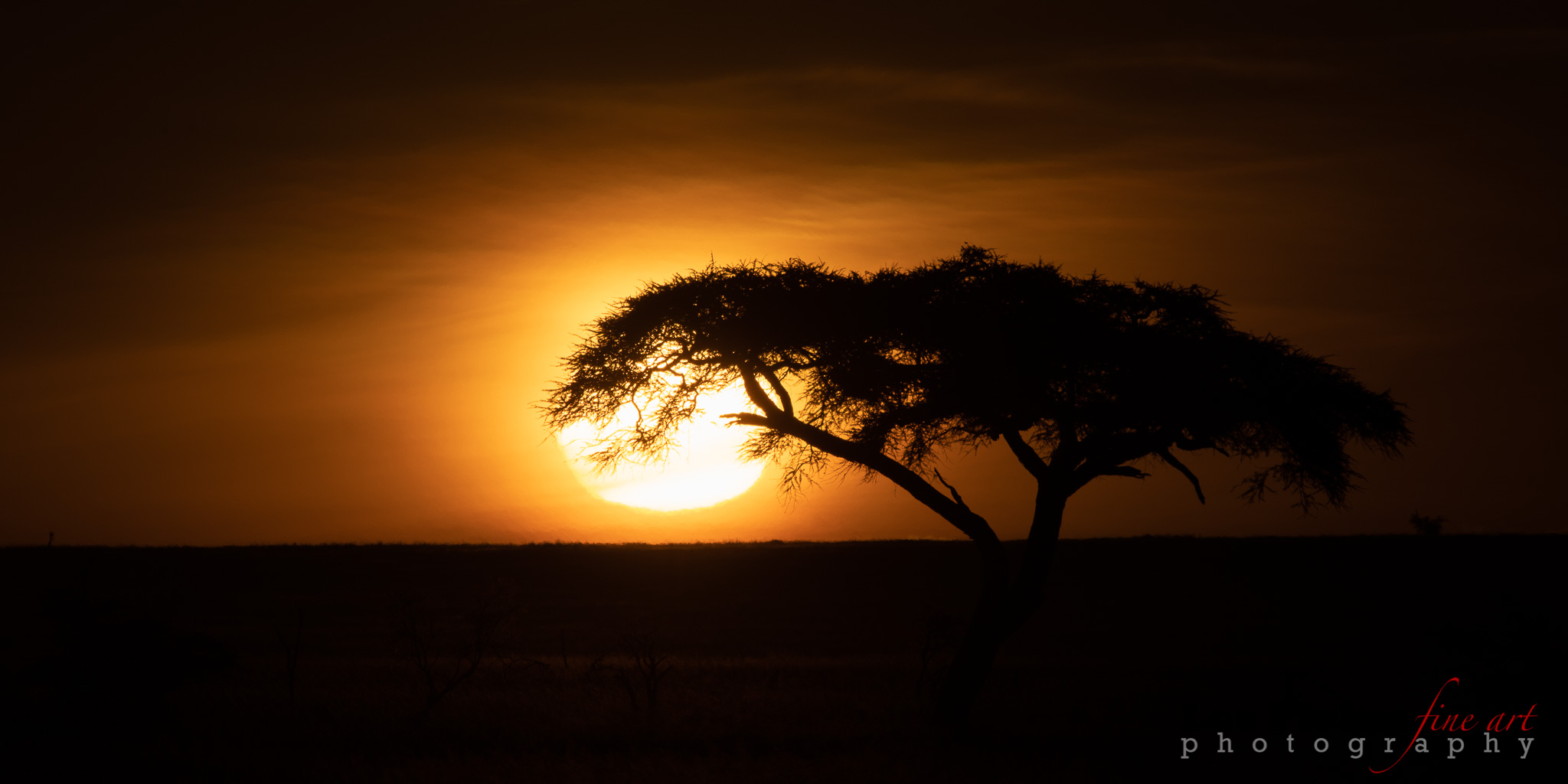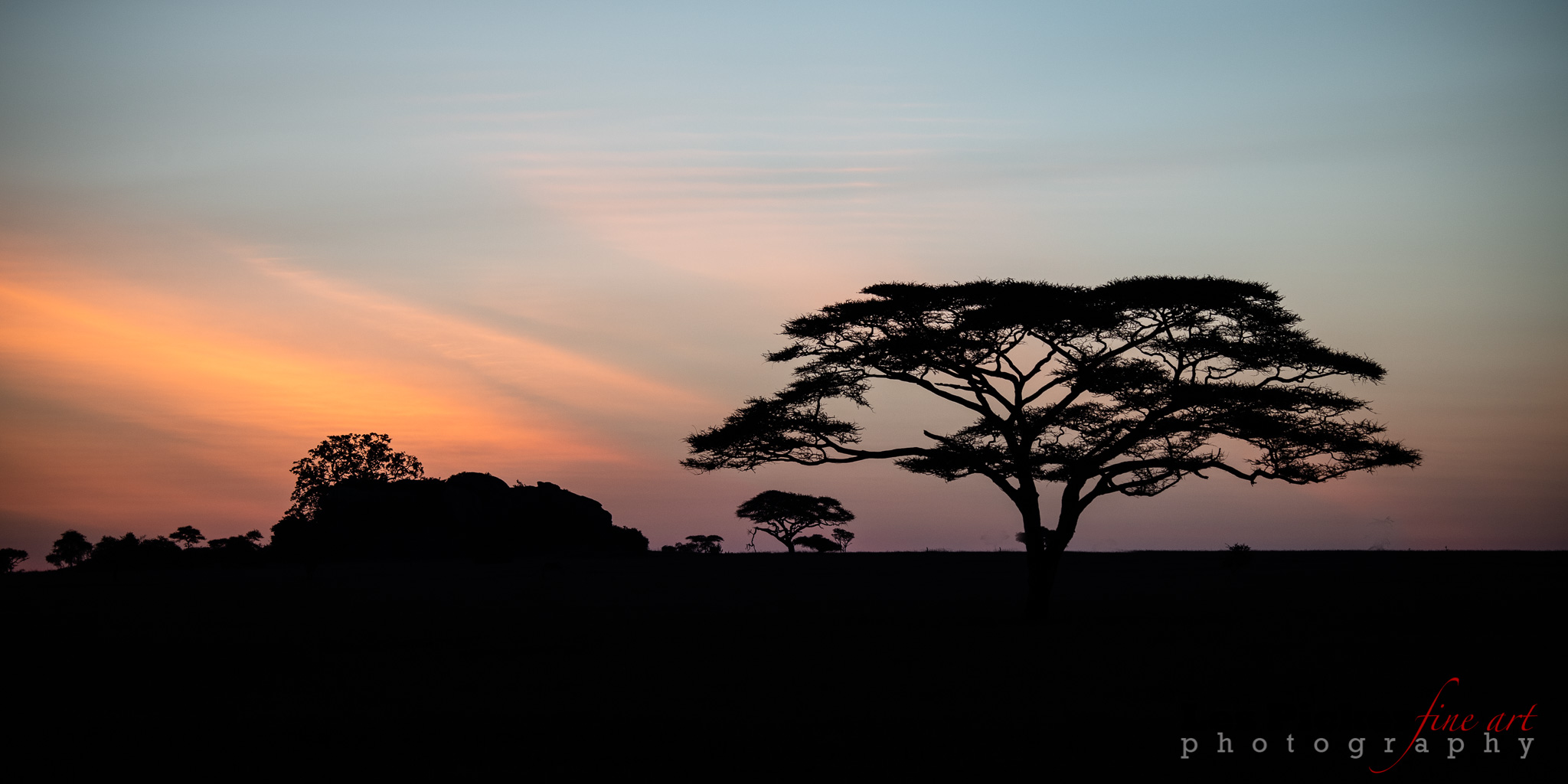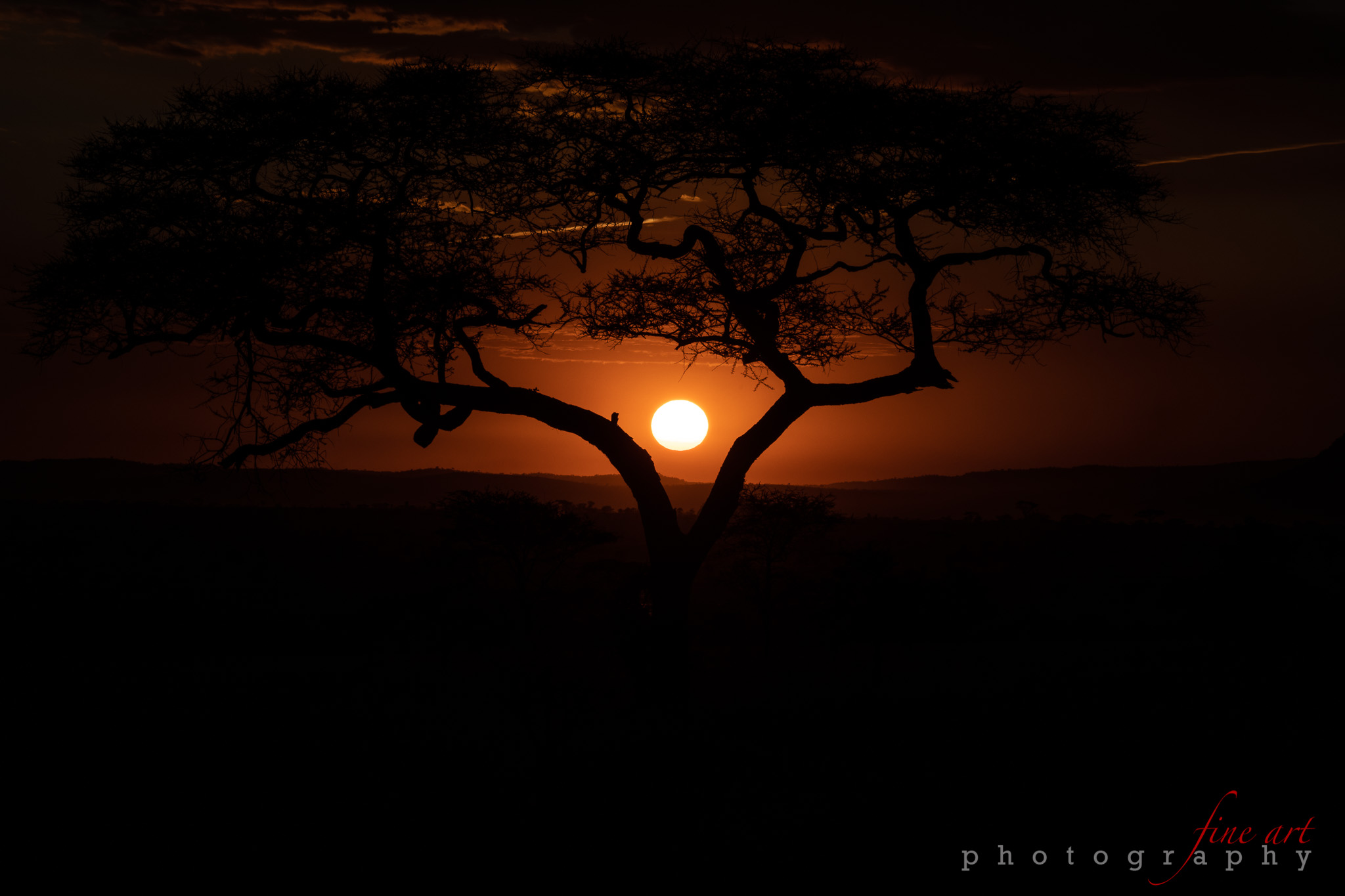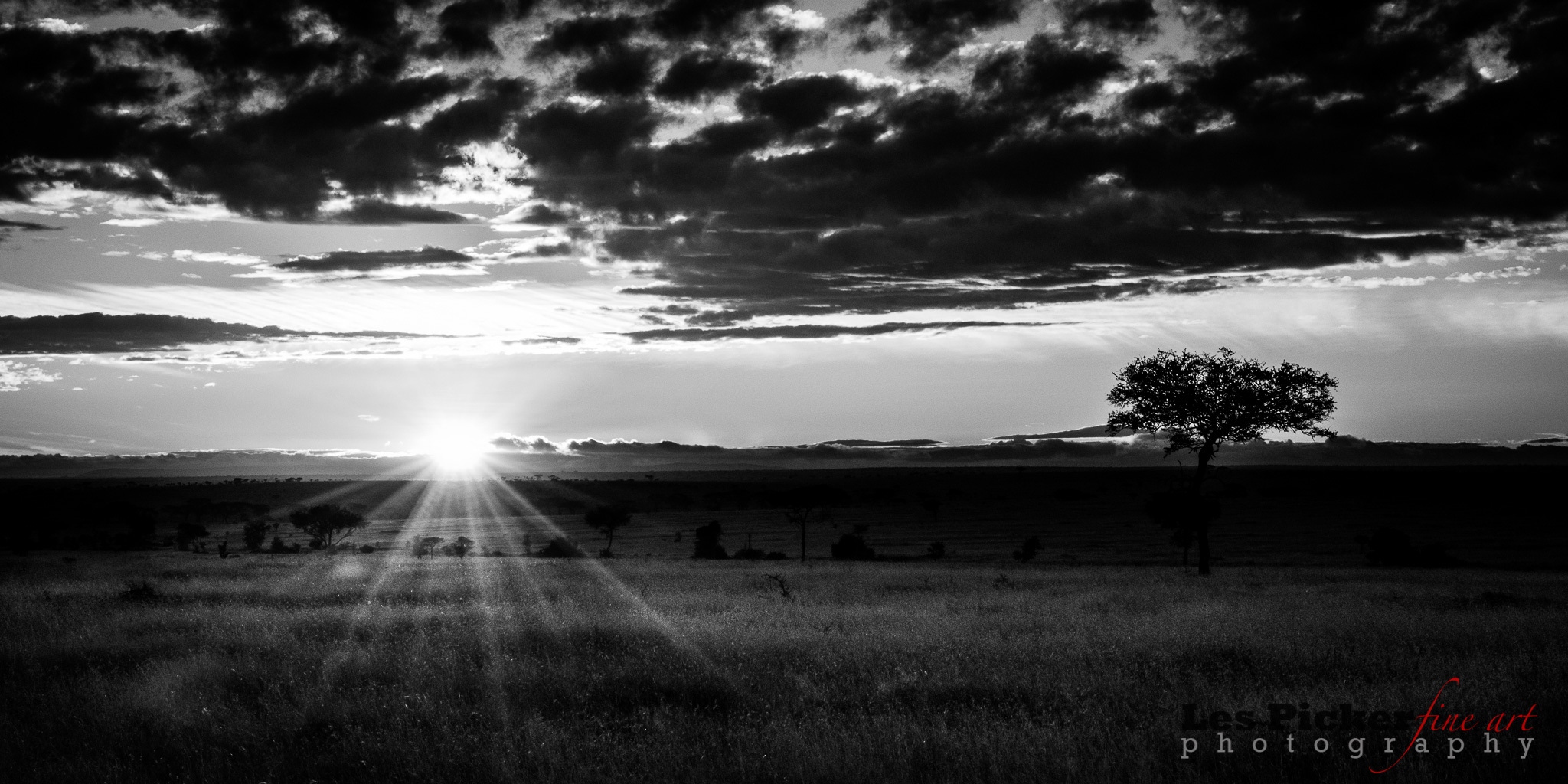
Sunrise, Sunset in the Serengeti
Africa
So many tourists go to the Serengeti and start their day with a hearty breakfast and then head out for a leisurely Rover ride to see the incredible wildlife. If only they realized that by then they have missed one of the high dramas of the day.
On my safaris, we start the day before sunrise, so that we are at advantageous positions to capture the sun rising over the Serengeti plains. Only after shooting the spectacular sunrises that Africa is known for, and perhaps after checking prides of lions to see if they are ready for a hunt, will we stop for a glorious field breakfast.
Sunrises and sunsets in the Serengeti are truly special. The golden sun rises full and large, usually into cloudless skies. That gives us a blank palette within which we can compose our images.

A few suggestions for those of you planning to be in the Serengeti (and elsewhere in Africa) in the near future:
Early Does It. Sunrise and sunset happen very quickly, giving you literally seconds to capture your image. The first rule of thumb is to be in your Rover and on site at least 10 minutes prior to the sun breaking the horizon.
Ready Your Gear. Before retiring at night, make sure you have dusted off your camera and lenses. Try to determine what lens you will need on your camera, based on your vision of how you want the image to appear. Charge your batteries and be sure you have enough storage on your card so you don’t have to change cards in the midst of the shoot.
Pre-Visualize. You will undoubtedly have several days of sunrises and sunsets to shoot, so on each day figure out what you wish to capture. Are you looking for subjects rendered in silhouettes? Are you looking for wide-angle images or closeups? Those visualizations will determine your lens choice, your f-stop, shutter speed and ISO.
Meter Correctly. Based on your pre-visualization, you can determine how you’d like to meter your subject. For example, if you want your foreground elements to be in silhouette, spot meter on an area just off the sun. That will cause your foreground objects to darken.

Experiment. In the relative peace and quiet of early morning, when very few vehicles will be out, take the opportunity to experiment with your photography. Try wildly different settings. Possibly try black and white.

Communicate. You should develop a good communication system with your driver/guide. Sometimes moving your Rover three feet in one direction can make or break an image.
Enjoy the Zen. I’ll admit there have been times when I have totally botched my own advice. But I know there will be other sunrises and sunsets. In those cases, just lean back in your Rover and soak in the glory that surrounds you. The sun is coming up, birds are singing, a lion may be roaring in the distance, wildebeests will be snorting and zebras braying. Breathe in the sights, smells and sounds of the Serengeti.